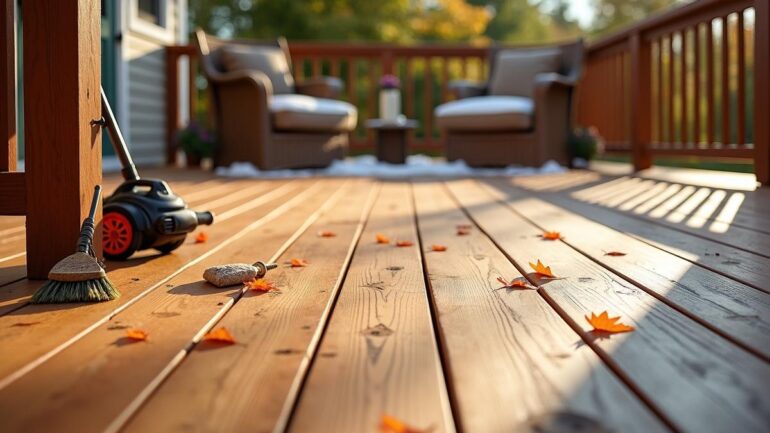In 2020, folks in the US spent close to $420 billion on do-it-yourself house projects. That shows how much Americans are willing to spend on home improvements and repairs.
If you’re planning to alter or fix your home yourself, it’s best to know which ones you shouldn’t DIY, though. Otherwise, a failed project may rack up more expenses, or worse, cause more damage.
To that end, we came up with this guide on projects that are usually beyond the skill set of average homeowners. Read on so that you know which activities to avoid giving a go, as they can compromise your home and family’s safety.
Projects Involving Crucial Plumbing Components
Water damage and freezing accounted for 29.4% of all US homeowners’ insurance claims in 2019. What’s more, from 2015 to 2019, filings of such nature resulted in an average loss of $11,098.
That should give you an idea of how expensive it can be to repair plumbing disasters.
Now, your homeowners’ policy might cover repairs of a house project you did yourself. However, you can only expect coverage for accidental or sudden damages. On the other hand, your insurer won’t cover a problem caused by poor quality work.
For instance, suppose you remodeled the bathroom, and a new pipe you put in started leaking a month after. Let’s also say the problem occurred because you used putty instead of joint compound. Since you should have used the latter, then the issue is a case of faulty work.
As a result, any damage or repairs caused by that leaking pipe will be yours to cover.
There’s also the risk of DIY plumbing jobs resulting in slow drips that don’t exhibit signs right away. For instance, it can take weeks or even months for leaking hidden pipes to cause visible damage. So, by then, the leaks could’ve already made floors or wallboards damp or soggy.
Worse, those pipe leaks can give rise to indoor mold and mildew development. Such can be especially harmful to the 10% of people in the US with mold allergies. However, they can also cause sneezing and nasal congestion in even healthy folks.
All that should be a good enough reason to hire a pro for house projects involving major plumbing work.
Tasks Requiring Electrical Work
Every year, electrical injuries result in up to 10,000 people in the US having to go to emergency rooms. These include patients who’ve sustained electrical burns or electric shocks. What’s more, electrical burns account for as many as 4% of burn center admissions each year.
Many of those injuries, in turn, result from household exposure to electricity.
Aside from injuries, problems with electrical components can also cause property fires. For instance, of the estimated 354,400 home fires in the US in 2019, 6.8% were due to electrical malfunctions. That’s close to 25,000 house fires resulting from problems with electrical work!
That’s why electrical work is not a DIY project, except, of course, if you’re an electrical pro yourself. Besides, most jobs involving electrical (as well as plumbing) components require a permit. Even relocating outlets often require such paperwork.
On the other hand, a licensed electrician will take care of all necessary permits on your behalf. Moreover, these pros always carry insurance, so you’re not liable even if they do get injured. In addition, their insurance provides coverage in the unlikely event of property damage.
Installations or Repairs That Come With Fall Risks
Each year, US emergency rooms treat over 164,000 injuries caused by falls from ladders. That’s on top of the injuries resulting from improper ladder use or defective ladders. Even carelessness while using such devices has landed people in ERs and hospitals.
With that said, it’s best to avoid taking on DIY projects requiring elevation. These include re-roofing or roof repairs, especially if your roof has a steep slope. Another example is fixing or installing new windows on the second (or higher) floors.
Improvements Meant to Help Sell Your Home
Many of today’s home buyers want to purchase a place they can occupy immediately. So, a house with plumbing leaks, roofing problems, and damaged floors can put them off. At the very least, they’re likely to negotiate a much lower price for properties with such faults.
As such, you want to get all those essential repairs done if you’d like to get the best price for your home. For a more in-depth explanation of what to fix before selling your home, discover more here.
In any case, it’s best to leave plumbing, roofing, and electrical repairs in the hands of pros. This way, you don’t have to worry about putting the next occupants of your home at health and safety risk. Potential buyers would also likely feel more at ease if they know that you hired pros to fix the house they plan to buy.
Removal of Potentially Hazardous Materials
In a 2020 press release, the CDC warned that 3.6 million families in the US are at risk of lead paint poisoning. That’s because many of these households live in homes that still have lead paint in them. Some have the original lead paint, while others have the toxic paint covered by other paint.
If your home has been around before 1978, there’s a chance it contains lead-based paint. That’s because it was only during that year the US banned its use.
Another dangerous material that may be lurking in your home is asbestos. It’s a deadly carcinogen that can cause mesothelioma and other lung cancers. Exposure can happen if you disturb and inhale asbestos fibers.
Unfortunately, many asbestos-containing products have been available in the US until 2019. Some examples are roofing felt, insulation, tiles, adhesives, and sealants.
With that said, don’t attempt to carry out
if you’re not sure if your home has lead, asbestos, or both. Instead, hire licensed contractors so they can test your home for these materials. It’s even better if they have the license to remove these dangerous components from your home.
Leave Big House Projects in the Hands of Pros
Successful DIY house projects can save you a lot since you won’t have to pay for labor. However, there’s a risk of them going wrong, especially if you don’t have prior experience.
So, for projects involving plumbing, electrical, heights, or dangerous materials, always go pro.
Would you like to read more guides on real estate or home improvements? Then please feel free to browse our recent educational blog posts!





